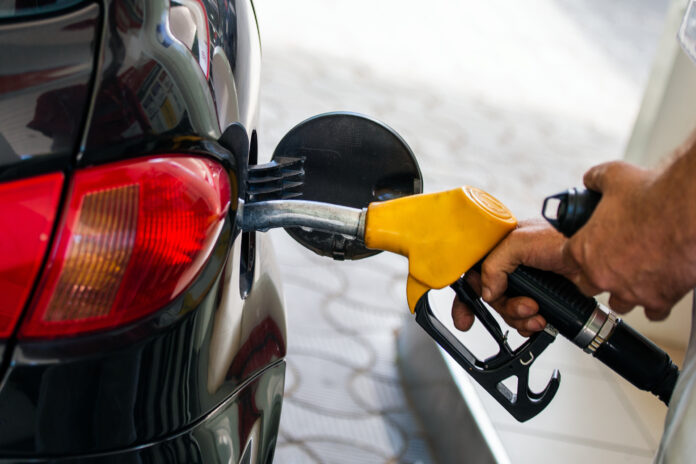The upcoming legislative session in Louisiana is going to be met with a coalition of contractors and other special interest groups intending to persuade lawmakers to advance a $300 million annual state gasoline tax increase. This movement is mostly spearheaded by the Louisiana Coalition to Fix Our Roads, stating that their efforts in increasing the gas tax will address, and remedy, a budgetary backlog of road and bridgework in the Pelican State.
However, gasoline taxes are inherently unreliable sources of funding when it comes to state roads, maintenance, and other transportation infrastructure projects. This is attributable to the rise of more fuel-efficient vehicles. According to The Electric Vehicle World Sales Database, sales in electric vehicles have been consistently increasing since 2011. Furthermore, if states begin to follow in the footsteps of California Gov. Gavin Newsom, we are likely to see a phasing-out of the sale of gasoline-powered cars in the years to come.
In 2015, Daniel Vock, writing for Governing, examined state gasoline tax data reported to the U.S. Census Bureau and discovered two-thirds of state-imposed fuel taxes failed to keep state transportation budgets afloat amid inflation. Moreover, the coronavirus pandemic has added an unforeseen layer to the complexities and shortcomings of using gasoline taxes to subsidize state-run programs and projects.
The stark declines in driving that accompanied lockdowns and shelter-in-place orders drastically affected gasoline tax revenue for state and local governments, highlighting the fact that gas taxes are no longer viable sources for state infrastructure and transportation funding. According to the American Road and Transportation Builders Association, more than $8.5 billion in planned projects across 14 states were canceled or delayed because of budgetary shortcomings due to COVID-19.
Additionally, fuel taxes are highly regressive and carry with them a myriad of economic consequences including creating new direct-to-consumer costs. As a function of corporate finance, large-scale corporations and transit entities will see their usual budget allocation for fuel fall short with increasing prices, thus higher prices on goods and services will be the result.
As is the case with many top-down taxes, an increase in gasoline taxes will hit small business owners harder in a time when small businesses do not need any more hurdles to surmount, thanks to the coronavirus-related downturn. According to Main Street America’s Small Business Survey in Louisiana, 81.2 percent of small business owners surveyed had suspended storefront operations and/or experienced a loss of revenue as a result of the COVD-19 public health emergency. The marginal cost of an increase in gasoline taxes could signal the deciding point between transportation and an employees’ wages.
In a Maryland Public Policy Institute study, Wendell Cox and Ronald Utt argue that gas taxes have a significantly greater negative effect on the budget of lower- and middle-income families than they do for wealthier households. Gasoline consumption is inelastic for most Americans, meaning that those who are already marginally able to pay their bills will have an increased financial burden due to an increase in fuel taxes.
The most recent push in the Louisiana Legislature to enact gas tax increases came in the form of HB 632, which failed in 2017, foregoing the voting process in both the House or Senate because of overwhelming opposition. Louisianans currently pay 38.4 cents per gallon in gasoline taxes, including 20 cents per gallon in state-levied charges. The most recent proposal would increase the state portion 22 center higher across a decade, initially adding 10 cents after the would-be passage of the legislation. After the first increase, the proposal is set to add 2 cents every other year until 2033.
Moreover, the revenue from fuel taxes, more often than not, are rarely used towards their planned causes. The latest example of this took place in Pennsylvania, where gas tax revenue intended to fund bridge repairs went to the state police instead. The Keystone State saw $802 million in gas tax revenue allocated toward police funding. While police funding is laudable and paramount to society, there is no way for constituents to be sure that gas tax funding is going towards the betterment of state transportation infrastructure.
It would behoove the Louisiana Legislature, as well as all state legislatures, to ensure that gas tax dollars are only allocated towards transportation projects. Furthermore, as more electric and fuel-efficient vehicles enter the market, policymakers will need to consider more modern and effective ways to fund road construction and general state transportation infrastructure. Many states have turned to privatizing roads and establishing toll systems as ways to improve their roadways.
Overall, as the looming legislative session nears, Louisiana legislators should avoid looking to ultimately unreliable gas tax increases and look towards legislation and policies that will provide more effective infrastructure funding in the years to come.











